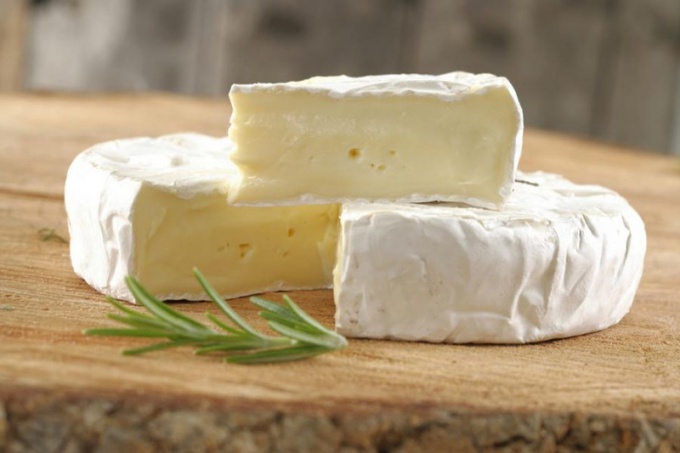Classic bree has a different taste and thickness, depending on the degree of consistency of the product. The young cheese is a pellet with a diameter of 30-60 cm and a thickness of about 5 cm. its Taste is very delicate with a slight nutty flavor. Aged brie more subtle in appearance and spicy taste, with a pleasant sharpness. Some types of this cheese may also contain various spices and herbs.
Real French brie cheese before eating need to get from the fridge or cellar and hold it for some time at room temperature, then the product will become more enjoyable. To enjoy it and to appreciate its taste, absolutely do not need any additional products, because he is extremely good in itself.
Nevertheless, this product, like most French cheeses, goes well with fresh bread and pastries. It is best to bree's suitable, of course, a crispy baguette, but no less tasty, this cheese will appear and a croissant with no additives. It will be the best appetizer for red or white wine and a lovely hearty Breakfast.
Then you can experiment with fruits and vegetables, relying on their own taste preferences. Bree, for example, goes well with tomato sauce or fresh arugula. Fruit he can have strawberries and other berries, as well as the different grapes.
In addition, brie cheese can be used for preparation of various snacks. Delicious and interesting dish, for example, are large mushrooms baked with herbs and brie cheese. Or salad with grapes, crumbled brie, arugula, walnuts and any French dressing.
This product is not only a pleasant taste, but also contains a lot of vitamins. Among them: b vitamins, vitamins a, D, E and K. It also enriches the body with various minerals, including sodium, phosphorus, calcium, manganese and zinc. In the composition of brie cheese contains useful bacteria that are beneficial to the intestinal flora and improve digestive processes. Despite the fact that it retains all the valuable components of milk, there is practically no lactose, so this cheese can be safely included in the diet of those who can not tolerate this substance.
However, large quantities of brie to use is still not recommended, as it refers to cheese with mold. Also it is worth to give it some time to those who have recently suffered from an illness related to intestinal infections.
What products combine the brie cheese
Real French brie cheese before eating need to get from the fridge or cellar and hold it for some time at room temperature, then the product will become more enjoyable. To enjoy it and to appreciate its taste, absolutely do not need any additional products, because he is extremely good in itself.
Nevertheless, this product, like most French cheeses, goes well with fresh bread and pastries. It is best to bree's suitable, of course, a crispy baguette, but no less tasty, this cheese will appear and a croissant with no additives. It will be the best appetizer for red or white wine and a lovely hearty Breakfast.
Then you can experiment with fruits and vegetables, relying on their own taste preferences. Bree, for example, goes well with tomato sauce or fresh arugula. Fruit he can have strawberries and other berries, as well as the different grapes.
In addition, brie cheese can be used for preparation of various snacks. Delicious and interesting dish, for example, are large mushrooms baked with herbs and brie cheese. Or salad with grapes, crumbled brie, arugula, walnuts and any French dressing.
Use brie cheese and contraindications for use
This product is not only a pleasant taste, but also contains a lot of vitamins. Among them: b vitamins, vitamins a, D, E and K. It also enriches the body with various minerals, including sodium, phosphorus, calcium, manganese and zinc. In the composition of brie cheese contains useful bacteria that are beneficial to the intestinal flora and improve digestive processes. Despite the fact that it retains all the valuable components of milk, there is practically no lactose, so this cheese can be safely included in the diet of those who can not tolerate this substance.
However, large quantities of brie to use is still not recommended, as it refers to cheese with mold. Also it is worth to give it some time to those who have recently suffered from an illness related to intestinal infections.
